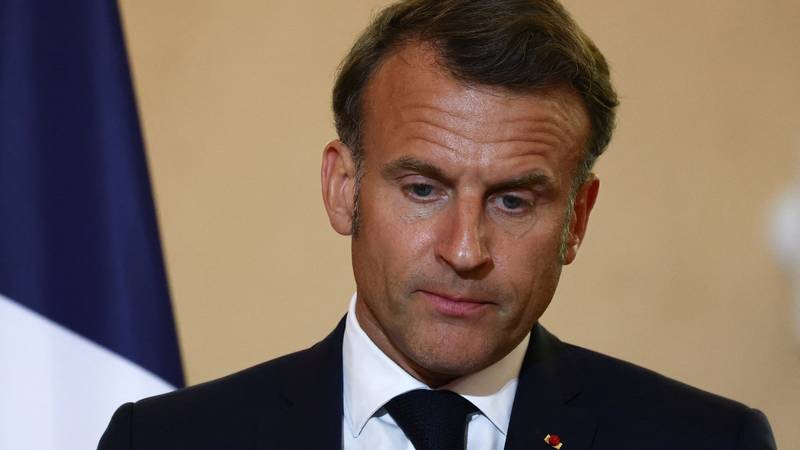South Korean judges ratify President Yoon deposit for coup attempt
:format(webp)/s3/static.nrc.nl/wp-content/uploads/2024/12/03223143/web-0312BUI_yoon3-1.jpg)
South Korean President Yoon Suk-Yeol has been put out of office. The Constitutional Court in Seoul announced this on Friday morning in a long -awaited judgment. South Koreans can go to the polls within sixty days to choose his successor.
The eight judges unanimously ruled that Yoon has violated « the principles of democracy » and his constitutional powers went beyond.
Yoon did that by unexpectedly calling the military emergency on 3 December. The free press was restricted, and political meetings were banned. According to Yoon, that was necessary because South Korea was threatened by « pro-Noord-Korean and anti-STRAINT forces, » although he did not immediately make it clear what he meant by that. During his deposition process, he later said that his action had only been « symbolic » to draw attention to the « corruption » of the opposition, which used its parliamentary majority to block Yoons policy.
Yoon’s television speech struck that evening like a bomb. Many older South Koreans will have remembered the eighties of the last century. The then authoritarian regime also proclaimed the state of emergency. A bloody rebellion in the southern city of Gwangju is a national trauma.
Read also
Power grip President South Korea encounters parliament and on his own party: after a few hours of military emergency state is lifted again
Despite the late hour, the streets of the capital Seoul ran full after Yoons announcement full of demonstrators, especially in the vicinity of the National Assembly. There, an army unit tried to prevent the parliament from gathering with sufficient members to reverse the measure, but that was in vain. 190 of the three hundred representatives – including members of Yoons of own conservative party – managed to reach the meeting room and voted unanimously for lifting the state of emergency, after which Yoon had to return to his steps.
Yoon was dropped off by parliament a short time later. Now that the Constitutional Court has confirmed that, that is final.
The fallen president also is still under criminal persecution: he is suspected of ‘rebellion’ by the South Korean justice, a offense that falls outside his presidential immunity and for which he can in theory be given the death penalty-although it has not been performed in South Korea for decades. The treatment of his criminal case starts later this month.
New elections
Now that Yoon Defintief has to leave the field, elections must be held within sixty days to choose a successor for the president. He then completes the rest of Yoons period, until 2027. The leader of the progressive Democratic party, Lee Jae-Myung, is a favorite. He lost the presidential election in 2022 with a tiny margin of Yoon.
But just like Yoon, Lee is also engaged in various scandals and criminal cases. However, a court spoke to him on appeal last week in a case that revolved around violating the Electoral Act. If his earlier conviction in that case had remained, he would not have been allowed to participate in the upcoming elections.
But Lee is not undisputed and possibly Yoons Conservative PPP with a good counter candidate can attract many moderate voters. The party has not yet designated a presidential candidate. Among other things, the current mayor of Seoul Oh Se-Hoon is mentioned.
Neither the deposition of Yoon nor the undoubtedly fierce election campaign that is now following will be able to put an end to the deep division in South Korea. Shortly after Yoon’s coup attempt, a large majority supported his departure and the DP was well ahead of most opinion polls-although they do not have a very reliable reputation in South Korea. But as the political crisis in the country continued, the support for Yoon and the PPP also increased. Every day in Seoul and other South Korean cities, but also more and more is demonstrated before the president.
Older, conservative South Koreans in particular are strongly influenced by Online conspiracy theories. It claims-without evidence-that the last two parliamentary elections, both of which were won by the progressive opposition, were falsified by China or North Korea. Yoon himself is also a supporter of that theory: during his coup attempt, he had soldiers sent to the offices of the National Electoral Committee to look for evidence for the alleged manipulation.
Read also
According to his supporters, Yoon wanted to save democracy in South Korea
The protests regularly get out of hand. Radical supporters stormed For example, the court in Seoul when he extended the custody of Yoon in January. At least two supporters of Yoon were also killed that had set himself on fire in protest against his deposition and persecution.
Strict security measures were therefore taken for fear of disturbances around the ruling of the Constitutional Court. In Seoul, fourteen thousand officers were on their feet, metro stations and schools in the area were closed and a flight ban applied. Apart from a security scordon around the court, tens of thousands of supporters and opponents of the president demonstrated.
/s3/static.nrc.nl/wp-content/uploads/2025/04/04045341/SOUTHKOREA-POLITICS_67048900.jpg)
Opponents of Yoon gathered on the street celebrated the verdict exuberantly. But elsewhere in the city, his supporters roded furiously. « Damn communists, » heard a reporter from the newspaper Joongang Ilbo call the angry crowd. The death of opposition leader Lee was also called.
Political paralysis
With the deposition of Yoon and the election of a new president, perhaps the months -long political paralysis in Seoul will come to an end. It came at an extremely inconvenient moment: the country is struggling with a threat from North Korea, a stagnating economy, housing shortage and a demographic crisis.
But moreover, a month after Yoons Coup in Washington Donald Trump took place as president. He announced on Wednesday, as part of his global import duties, that the US products from South Korea with 26 percent import duties start to burden. In addition, an input rate of 25 percent applies to all cars and car parts-the most important export product from South Korea to the US. But since the coup attempt there has been no direct contact between Seoul and the US President.

:format(webp)/s3/static.nrc.nl/images/gn4/stripped/data127951180-4eb66d.jpg)
/s3/static.nrc.nl/images/gn4/stripped/data132854413-a3e368.jpg|https://images.nrc.nl/nTeCgI4ELNBl9jrvKsSa--fJ8z8=/1920x/filters:no_upscale()/s3/static.nrc.nl/images/gn4/stripped/data132854413-a3e368.jpg|https://images.nrc.nl/8OiFqQ6TBIWU24L7Itxx5j885qE=/5760x/filters:no_upscale()/s3/static.nrc.nl/images/gn4/stripped/data132854413-a3e368.jpg)
:format(jpeg):fill(f8f8f8,true)/s3/static.nrc.nl/bvhw/wp-content/blogs.dir/114/files/2019/01/krielaars-michel-online-homepage.png)
:format(jpeg):fill(f8f8f8,true)/s3/static.nrc.nl/taxonomy/bf9b707-commentaar-itemafbeelding-2024.png)




